- Home
- Roald Dahl
More Tales of the Unexpected Page 14
More Tales of the Unexpected Read online
Page 14
When finally we got back to our room I started packing at once.
‘You crazy?’ George said. ‘We’ve only got to wait a few hours and we receive five hundred dollars each from Womberg and the Hines woman. Then we’ll have two thousand altogether and we can go anywhere we want.’
So we spent the next day waiting in our room and reading the papers, one of which had a whole column on the front page headed, ‘Brutal assault on famous columnist’. But sure enough the late afternoon post brought us two letters and there was five hundred dollars in each.
And right now, at this moment, we are sitting in a Pullman car, drinking Scotch whisky and heading south for a place where there is always sunshine and where the horses are running every day. We are immensely wealthy and George keeps saying that if we put the whole of our two thousand dollars on a horse at ten to one we shall make another twenty thousand and we will be able to retire. ‘We will have a house at Palm Beach,’ he says, ‘and we will entertain upon a lavish scale. Beautiful socialites will loll around the edge of our swimming pool sipping cool drinks, and after a while we will perhaps put another large sum of money upon another horse and we shall become wealthier still. Possibly we will become tired of Palm Beach and then we will move around in a leisurely manner among the playgrounds of the rich. Monte Carlo and places like that. Like the Ali Khan and the Duke of Windsor. We will become prominent members of the international set and film stars will smile at us and head-waiters will bow to us and perhaps, in time to come, perhaps we might even get ourselves mentioned in Lionel Pantaloon’s column.’
‘That would be something,’ I said.
‘Wouldn’t it just,’ he answered happily. ‘Wouldn’t that just be something.’
The Butler
As soon as George Cleaver had made his first million, he and Mrs Cleaver moved out of their small suburban villa into an elegant London house. They acquired a French chef called Monsieur Estragon and an English butler called Tibbs, both wildly expensive. With the help of these two experts, the Cleavers set out to climb the social ladder and began to give dinner parties several times a week on a lavish scale.
But these dinners never seemed quite to come off. There was no animation, no spark to set the conversation alight, no style at all. Yet the food was superb and the service faultless.
‘What the heck’s wrong with our parties, Tibbs?’ Mr Cleaver said to the butler. ‘Why don’t nobody never loosen up and let themselves go?’
Tibbs inclined his head to one side and looked at the ceiling. ‘I hope, sir, you will not be offended if I offer a small suggestion.’
‘What is it?’
‘It’s the wine, sir.’
‘What about the wine?’
‘Well, sir, Monsieur Estragon serves superb food. Superb food should be accompanied by superb wine. But you serve them a cheap and very odious Spanish red.’
‘Then why in heaven’s name didn’t you say so before, you twit?’ cried Mr Cleaver. ‘I’m not short of money. I’ll give them the best flipping wine in the world if that’s what they want! What is the best wine in the world?’
‘Claret, sir,’ the butler replied, ‘from the greatest châteaux in Bordeaux – Lafite. Latour, Haut-Brion, Margaux, Mouton-Rothschild and Chevel Blanc. And from only the very greatest vintage years, which are, in my opinion, 1906, 1914, 1929 and 1945. Cheval Blanc was also magnificent in 1895 and 1921, and Haut-Brion in 1906.’
‘Buy them all!’ said Mr Cleaver. Fill the flipping cellar from top to bottom!’
‘I can try, sir,’ the butler said. ‘But wines like these are extremely rare and cost a fortune.’
‘I don’t give a hoot what they cost!’ said Mr Cleaver. ‘Just go out and get them!’
That was easier said than done. Nowhere in England or in France could Tibbs find any wine from 1895, 1906, 1914 or 1921. But he did manage to get hold of some twenty-nines and forty-fives. The bills for these wines were astronomical. They were in fact so huge that even Mr Cleaver began to sit up and take notice. And his interest quickly turned into outright enthusiasm when the butler suggested to him that a knowledge of wine was a very considerable social asset. Mr Cleaver bought books on the subject and read them from cover to cover. He also learned a great deal from Tibbs himself, who taught him, among other things, just how wine should properly be tasted. ‘First, sir, you sniff it long and deep, with your nose right inside the top of the glass, like this. Then you take a mouthful and you open your lips a tiny bit and suck in air, letting the air bubble through the wine. Watch me do it. Then you roll it vigorously around your mouth. And finally you swallow it.’
In due course, Mr Cleaver came to regard himself as an expert on wine, and inevitably he turned into a colossal bore. ‘Ladies and gentlemen,’ he would announce at dinner, holding up his glass, ‘this is a Margaux ’29! The greatest year of the century! Fantastic bouquet! Smells of cowslips! And notice especially the after taste and how the tiny trace of tannin gives it that glorious astringent quality! Terrific, ain’t it?’
The guests would nod and sip and mumble a few praises, but that was all.
‘What’s the matter with the silly twerps?’ Mr Cleaver said to Tibbs after this had gone on for some time. ‘Don’t none of them appreciate a great wine?’
The butler laid his head to one side and gazed upward. ‘I think they would appreciate it, sir,’ he said, ‘if they were able to taste it. But they can’t.’
‘What the heck d’you mean, they can’t taste it?’
‘I believe, sir, that you have instructed Monsieur Estragon to put liberal quantities of vinegar in the salad-dressing.’
‘What’s wrong with that? I like vinegar.’
‘Vinegar,’ the butler said, ‘is the enemy of wine. It destroys the palate. The dressing should be made of pure olive oil and a little lemon juice. Nothing else.’
‘Hogwash!’ said Mr Cleaver.
‘As you wish, sir.’
‘I’ll say it again, Tibbs. You’re talking hogwash. The vinegar don’t spoil my palate one bit.’
‘You are very fortunate, sir,’ the butler murmured, backing out of the room.
That night at dinner, the host began to mock his butler in front of the guests. ‘Mister Tibbs,’ he said, ‘has been trying to tell me I can’t taste my wine if I put vinegar in the salad-dressing. Right, Tibbs?’
‘Yes, sir,’ Tibss replied gravely.
‘And I told him hogwash. Didn’t I, Tibbs?’
‘Yes, sir.’
‘This wine,’ Mr Cleaver went on, raising his glass, ‘tastes to me exactly like a Château Lafite ’45, and what’s more it is a Château Lafite ’45.’
Tibbs, the butler, stood very still and erect near the sideboard, his face pale. ‘If you’ll forgive me, sir,’ he said, ‘that is not a Lafite ’45.’
Mr Cleaver swung round in his chair and stared at the butler. ‘What the heck d’you mean,’ he said. ‘There’s the empty bottles beside you to prove it!’
These great clarets, being old and full of sediment, were always decanted by Tibbs before dinner. They were served in cut-glass decanters, while the empty bottles, as is the custom, were placed on the sideboard. Right now, two empty bottles of Lafite ’45 were standing on the sideboard for all to see.
‘The wine you are drinking, sir,’ the butler said quietly, ‘happens to be that cheap and rather odious Spanish red.’
Mr Cleaver looked at the wine in his glass, then at the butler. The blood was coming to his face now, his skin was turning scarlet. ‘You’re lying, Tibbs!’ he said.
‘No sir, I’m not lying,’ the butler said. ‘As a matter of fact, I have never served you any other wine but Spanish red since I’ve been here. It seemed to suit you very well.’
‘Don’t believe him!’ Mr Cleaver cried out to his guests. ‘The man’s gone made.’
‘Great wines,’ the butler said, ‘should be treated with reverence. It is bad enough to destroy the palate with three or four cocktails before dinner, as you pe
ople do, but when you slosh vinegar over your food into the bargain, then you might just as well be drinking dishwater.’
Ten outraged faces around the table stared at the butler. He had caught them off balance. They were speechless.
‘This,’ the butler said, reaching out and touching one of the empty bottles lovingly with his fingers, ‘this is the last of the forty-fives. The twenty-nines have already been finished. But they were glorious wines. Monsieur Estragon and I enjoyed them immensely.’
The butler bowed and walked quite slowly from the room. He crossed the hall and went out of the front door of the house into the street where Monsieur Estragon was already loading their suitcases into the boot of the small car which they owned together.
PENGUIN BOOKS
Published by the Penguin Group
Penguin Books Ltd, 80 Strand, London WC2R 0RL, England
Penguin Putnam Inc., 375 Hudson Street, New York, New York 10014, USA
Penguin Books Australia Ltd, 250 Camberwell Road, Camberwell, Victoria 3124, Australia
Penguin Books Canada Ltd, 10 Alcorn Avenue, Toronto, Ontario, Canada M4V 3B2
Penguin Books India (P) Ltd, 11 Community Centre, Panchsheel Park, New Delhi – 110 017, India
Penguin Books (NZ) Ltd, Cnr Rosedale and Airborne Roads, Albany, Auckland, New Zealand
Penguin Books (South Africa) (Pty) Ltd, 24 Sturdee Avenue, Rosebank 2196, South Africa
Penguin Books Ltd, Registered Offices: 80 Strand, London WC2R 0RL, England
www.penguin.com
The first two stories in this book are from Someone Like You,
originally published by Martin Secker & Warburg Ltd in 1954
and republished by Michael Joseph Ltd in 1961. The third and fourth
stories are from Kiss Kiss, first published by Michael Joseph Ltd
in 1960, and the fifth is from The Wonderful Story of Henry Sugar,
first published by Jonathan Cape in 1977
This selection first published in Great Britain by Michael Joseph Ltd 1980
Published simultaneously in Penguin Books
Copyright 1949, 1950 by Roald Dahl
Copyright © Roald Dahl, 1958, 1959, 1973, 1977, 1980
All rights reserved
Acknowledgement is hereby made to The New Yorker and Playboy in which two of the stories included in this volume first appeared
Except in the United States of America, this book is sold subject to the condition that it shall not, by way of trade or otherwise, be lent, re-sold, hired out, or otherwise circulated without the publisher’s prior consent in any form of binding or cover other than that in which it is published and without a similar condition including this condition being imposed on the subsequent purchaser
ISBN: 978-0-14-192891-3
There’s More to Roald Dahl than Great Stories …
Did you know that 10 per cent of author royalties* from this book go to help the work of the Roald Dahl charities?
Roald Dahl’s Marvellous Children’s Charity exists to make life better for seriously ill children because it believes that every child has the right to a marvellous life.
This marvellous charity helps thousands of children each year living with serious conditions of the blood and the brain – causes important to Roald Dahl in his lifetime – whether by providing nurses, equipment or toys for today’s children in the UK, or helping tomorrow’s children everywhere through pioneering research.
Can you do something marvellous to help others? Find out how at: www.marvellouschildrenscharity.org
The Roald Dahl Museum and Story Centre, based in Great Missenden just outside London, is in the Buckinghamshire village where Roald Dahl lived and wrote. At the heart of the Museum, created to inspire a love of reading and writing, is his unique archive of letters and manuscripts. As well as two fun-packed biographical galleries, the Museum boasts an interactive Story Centre. It is a place for the family, teachers and their pupils to explore the exciting world of creativity and literacy.
Find out more at www.roalddahlmuseum.org
Roald Dahl’s Marvellous Children’s Charity (RDMCC) is a registered charity no. 1137409.
The Roald Dahl Museum and Story Centre (RDMSC) is a registered charity no. 1085853.
The Roald Dahl Charitable Trust is a registered charity no. 1119330 and supports the work of RDMCC and RDMSC.
* Donated royalties are net of commission
Roald Dahl also wrote some rather popular children’s stories:
‘Roald Dahl is without question the most successful children’s writer in the world’
Independent

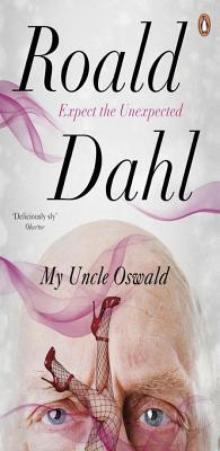 My Uncle Oswald
My Uncle Oswald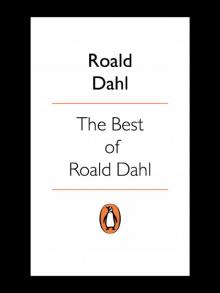 The Best of Roald Dahl
The Best of Roald Dahl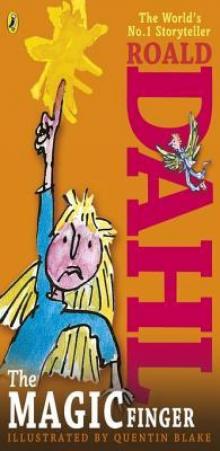 The Magic Finger
The Magic Finger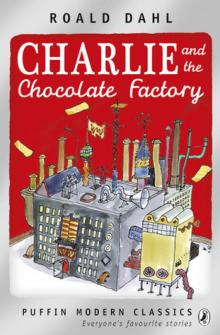 Charlie and the Chocolate Factory
Charlie and the Chocolate Factory Fantastic Mr Fox
Fantastic Mr Fox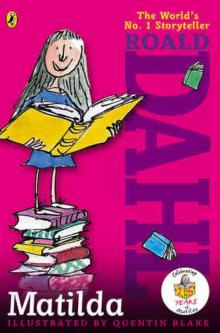 Matilda
Matilda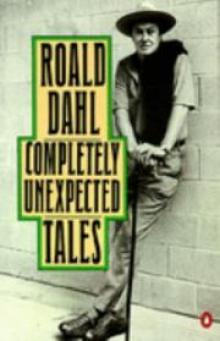 Completely Unexpected Tales: Tales of the Unexpected. More Tales of the Unexpected
Completely Unexpected Tales: Tales of the Unexpected. More Tales of the Unexpected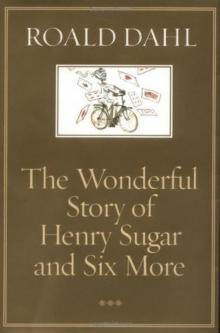 The Wonderful Story of Henry Sugar and Six More
The Wonderful Story of Henry Sugar and Six More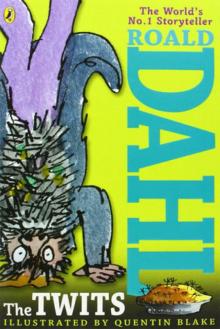 The Twits
The Twits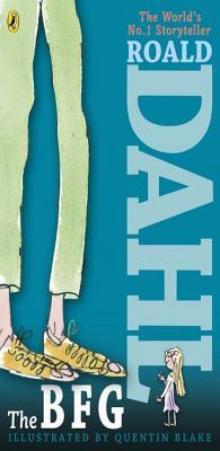 The BFG
The BFG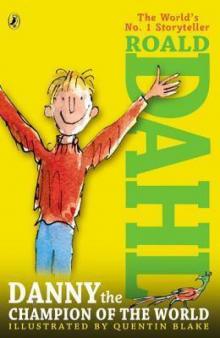 Danny the Champion of the World
Danny the Champion of the World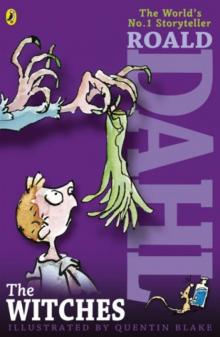 The Witches
The Witches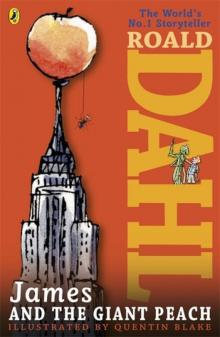 James and the Giant Peach
James and the Giant Peach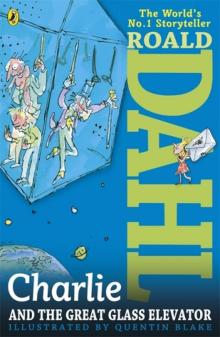 Charlie and the Great Glass Elevator
Charlie and the Great Glass Elevator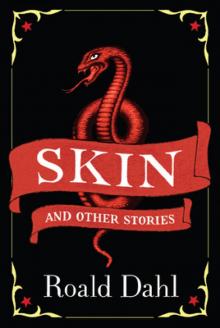 Skin and Other Stories
Skin and Other Stories Kiss Kiss
Kiss Kiss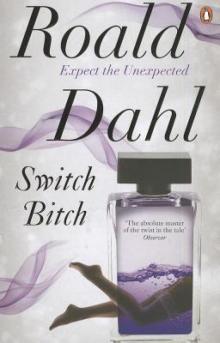 Switch Bitch
Switch Bitch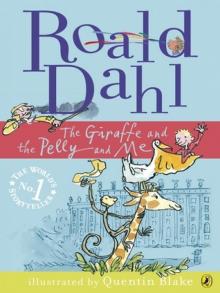 The Giraffe and the Pelly and Me
The Giraffe and the Pelly and Me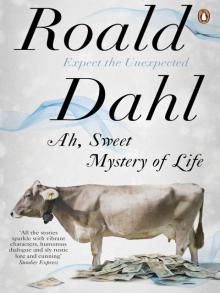 Ah, Sweet Mystery of Life
Ah, Sweet Mystery of Life Fear
Fear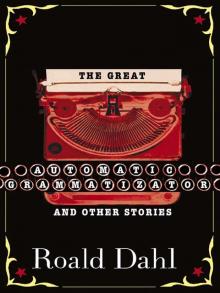 The Great Automatic Grammatizator and Other Stories
The Great Automatic Grammatizator and Other Stories Someone Like You
Someone Like You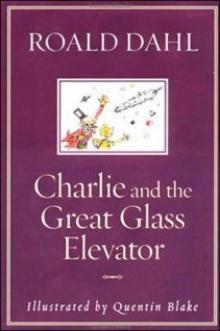 Charlie and the Great Glass Elevator c-2
Charlie and the Great Glass Elevator c-2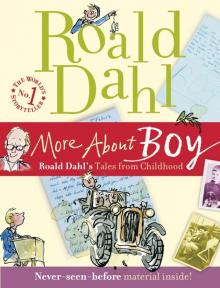 More About Boy
More About Boy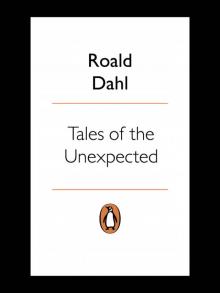 Tales of the Unexpected
Tales of the Unexpected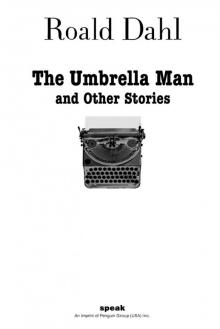 The Umbrella Man and Other Stories
The Umbrella Man and Other Stories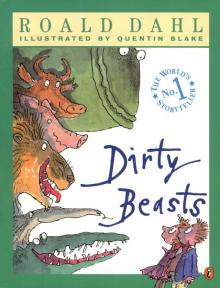 Dirty Beasts
Dirty Beasts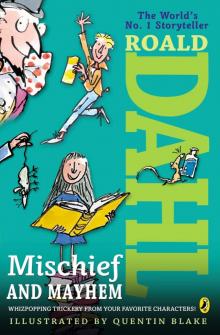 Roald Dahl's Mischief and Mayhem
Roald Dahl's Mischief and Mayhem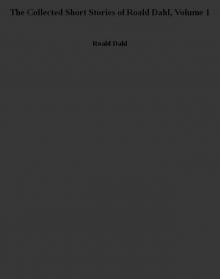 The Collected Short Stories of Roald Dahl, Volume 1
The Collected Short Stories of Roald Dahl, Volume 1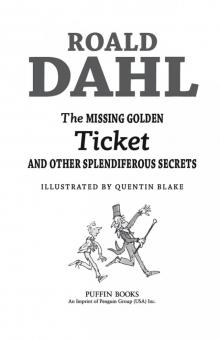 The Missing Golden Ticket and Other Splendiferous Secrets
The Missing Golden Ticket and Other Splendiferous Secrets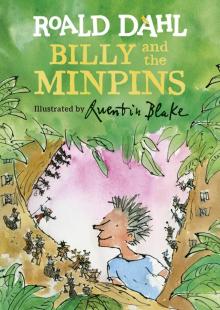 Billy and the Minpins
Billy and the Minpins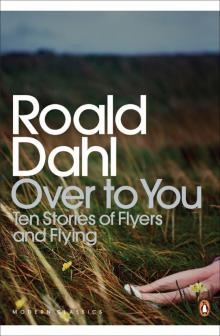 Over to You
Over to You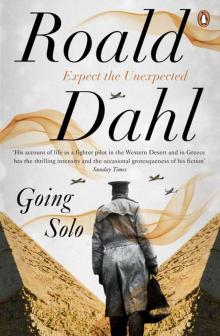 Going Solo
Going Solo Deception
Deception War
War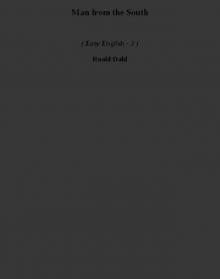 Man from the South ee-3
Man from the South ee-3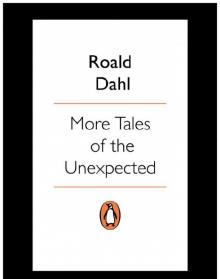 More Tales of the Unexpected
More Tales of the Unexpected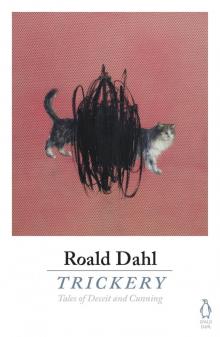 Trickery
Trickery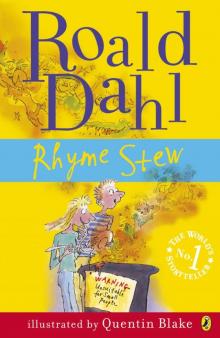 Rhyme Stew
Rhyme Stew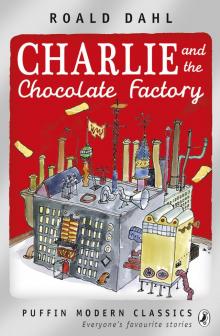 Charlie and the Chocolate Factory (Puffin Modern Classics relaunch)
Charlie and the Chocolate Factory (Puffin Modern Classics relaunch)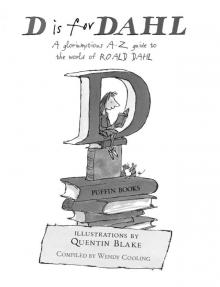 D is for Dahl
D is for Dahl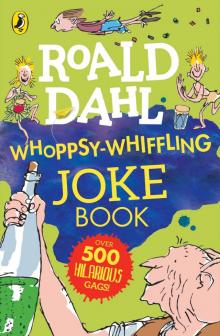 Roald Dahl Whoppsy-Whiffling Joke Book
Roald Dahl Whoppsy-Whiffling Joke Book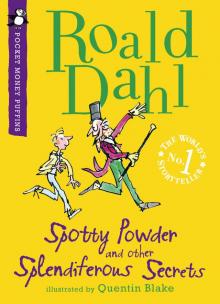 Spotty Powder and other Splendiferous Secrets
Spotty Powder and other Splendiferous Secrets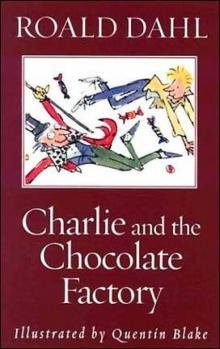 Charlie and the Chocolate Factory c-1
Charlie and the Chocolate Factory c-1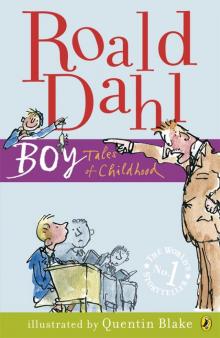 Boy
Boy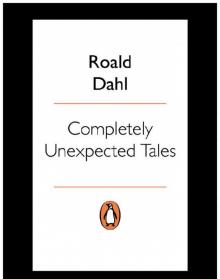 Completely Unexpected Tales
Completely Unexpected Tales Madness
Madness Innocence
Innocence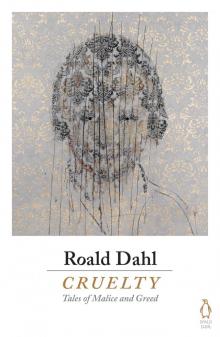 Cruelty
Cruelty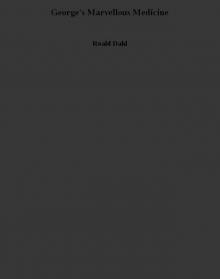 George's Marvellous Medicine
George's Marvellous Medicine